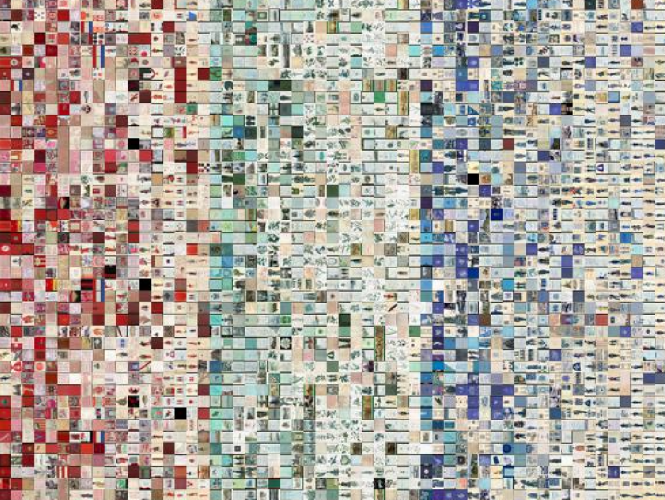If we can’t see the ethical stakes (+ power relations) in digital archives we are going to do violence. Do better. Born of frustration and still very much a work in progress (gotta get the kids to school)…I have much more to include and I welcome your suggestions via twitter @profwernimont #justDigitalArchives or my ASU .edu email. Readings #Archivessowhite Introduction and Bibliography, Issues and Advocacy Research Posts https://issuesandadvocacy.wordpress.com/2016/04/18/archivessowhite-intro-bibliography/ Elvia Arroyo-Ramirez, […]
Bibliography
Working Bibliography: Ethics of Care
UC Santa Barbara Humanities Center series “Value of Care” (podcasts incl) UNESCO Women Philosopher’s Journal Vol 1 (focus on issues of ‘care’ and ‘difference’) http://unesdoc.unesco.org/images/0021/002131/213131e.pdf Adams, C. and Donovan, J. The Feminist Care Tradition in Animal Ethics. New York: Columbia University Press, 2007. Bailey, Moya. #transform(ing)DH Writing and Research: An Autoethnography of Digital Humanities and Feminist Ethics (DHQ 2016) Bourgault, Sophie. “Beyond the saint and the red virgin: Simone Weil as feminist theorist of […]
Wearables/Algocracy working bibl
As is my way, I’ve been working with a few folks on another shared bibliography – this time on wearables and algorithmic culture. I’m pleased that our reading list includes of number of important pieces/books by women and I thought I’d share it with others. Blogs/Forums Can computers be racist? Big data, inequality, and discrimination / Ford Foundation Critical Algorithmic Studies reading list Articles/Books Abbate, Janet. Inventing the Internet […]
Build a better panel: Women in DH
I’ll skip the rant and get straight to the issue – can’t think of women who you might invite for keynote or other conference event? Let us help (crowdsourced list – you can add to the spreadsheet here – don’t worry about order and formatting, I’ll periodically fix). Pro-tip: the “Build a Better DH Syllabus” and “Build a Better List of Code Experts” are also great resources for this. [googleapps domain=”docs” […]
Build a better DH syllabus
Prompted by a discussion on twitter (ht to Whitney Trettien and Daniel Powell) today (2/18/2015) about the inexcusable absence of women’s work from DH syllabi, I’m creating a space for collecting resources (the initial set up is derived from the DHSI course on Feminist DH that I teach each year with Liz Losh – if you’re not on here, it’s not because I don’t know and love your work – […]
Working Bibliography: Anti-feminist violence online and transformative justice resources
I’m sharing here the helpful resource collection work of the FemTechNet network. Errors are my responsibility and I’m happy to add reader contributions. Update 10/4: Fembot Collective and ICA respond to gamergate Anti-Feminist Violence Online+ Association for Progressive Communications Women’s Rights Programme, “End Violence: Internet intermediaries and violence against women online” Balsamo, Anne Marie. Designing Culture: The Technological Imagination at Work. Durham [NC]: Duke University Press, 2011. Blanchette, Jean-Francois, and […]
Feminist Digital Humanities: Theoretical, Social, and Material Engagements around Making and Breaking Computational Media
Here’s our Digital Humanities Summer Institute (DHSI) course Elizabeth Losh, University of California, San Diego (updated: William and Mary College, VA) Jacque Wernimont, Scripps College (updated: Arizona State University, AZ) Although there is a deep history of feminist engagement with technology, projects like FemTechNet argue that such history is often hidden and feminist thinkers are frequently siloed. In order to address this, the seminar will offer a set of background […]
Feminisms and Technology, a bibliography in progress
I’ve been working on a now forthcoming article on feminisms and digital archives (for Spring DHQ) for a couple of years now. While the article initially was going to ask if XML and XSLT (markup and transformation languages used in many digital archives) could be thought of as feminist, I ended up writing a piece that talks about how difficult that question is to even ask. There are incredibly complex […]
A Digital Archive Webography
This is a draft of a resource for the Scripps Digital Archives course – I’d be happy to add your favorite digital archive to the list! Core III: Creating Archives Digital Webography (+) Glossary of archival terms About the Human Genome Project Aggregated 18th century resources Archimedes Palimpsest (history of math and digital imaging technology) Archive Grid: Explore the World’s Archives Archives Next blog: “The problem with the scholar as […]
